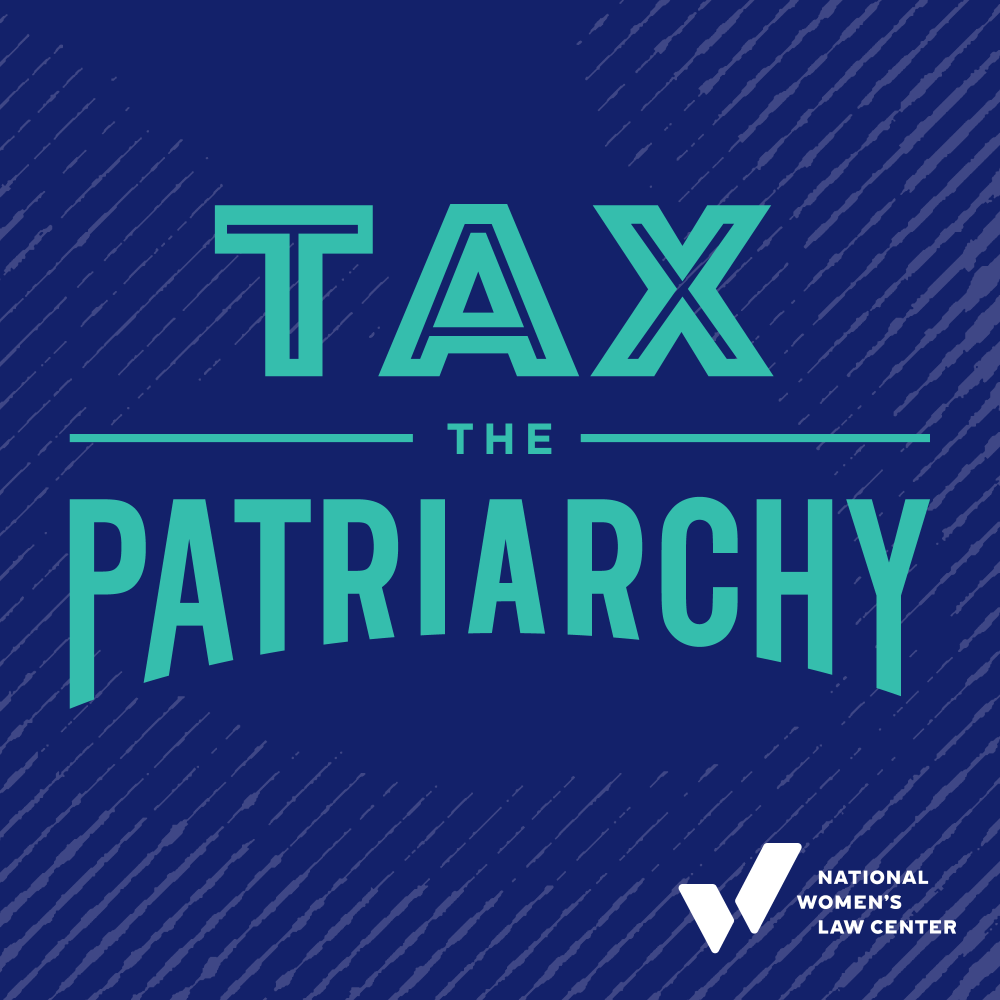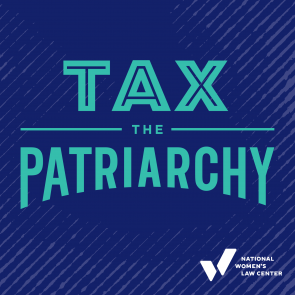Abortion rights, women of color, and LGBTQIA+ people are under attack. Pledge to join us in fighting for gender justice.
Five Reasons We Need to Tax the Patriarchy

 As we close out the decade, ‘tis the season for lists that reflect back on the last 10 years. This year we – along with our partners at the Groundwork Collaborative, Roosevelt Institute, and Georgetown Center for Poverty and Inequality – took a hard look at our tax code, how it disadvantages women and people of color, and how it can be harnessed as a tool for gender and racial equity.
As we close out the decade, ‘tis the season for lists that reflect back on the last 10 years. This year we – along with our partners at the Groundwork Collaborative, Roosevelt Institute, and Georgetown Center for Poverty and Inequality – took a hard look at our tax code, how it disadvantages women and people of color, and how it can be harnessed as a tool for gender and racial equity.
Our investigation found a LOT to be angry about. Here are just five of the many ways our tax code disadvantages women:
- It allows wealthy people to indefinitely delay (read: avoid) paying taxes on most of their income, even as working-class women pay a significant share of their tax bill with every paycheck. A provision known as the “stepped-up basis in capital gains” means that even as assets get more and more valuable, they won’t be taxed until they are sold. So, if a rich hedge fund manager holds onto shares of stock until he dies, and that stock grows in value from $1 million to $10 million, he will never pay taxes on it and in fact, can pass it to his heirs tax-free. Meanwhile, a child care worker could work her entire career and still not earn that sum of money, but her payroll taxes come out of every paycheck.
- It allows businesses to lower their taxable income—aka lower their taxes—while ignoring the work expenses disproportionately borne by low-income women: For example, businesses can deduct “business expenses” like legal fees to defend themselves against criminal activity or luxury office art. Meanwhile, working-class women are unable to get tax benefits for the ultimate work-related expense – child care – because, wait for it, their incomes are too low to qualify for the very help they need to work in the first place.
- Our tax code places a lesser value on workplace suffering experienced predominantly by women. Specifically, awards for workplace injuries (more likely to be men) are not taxed, but awards for workplace discrimination, including sexual harassment (more likely women, people of color and people with disabilities), are
- It offers a big tax break to rich households purchasing a vacation home, even as lawmakers claim we don’t have the resources to address our nation’s affordable housing crisis, which disproportionately affects families headed by women and people of color. Seventy percent of the mortgage interest deduction goes to people with six-figure incomes—disproportionately white households. Meanwhile, women-headed households and Black and Brown households are doubly disadvantaged. First, They receive fewer tax benefits since they are less likely to own homes or, if they do own a home, that home is more likely to be of lesser value.)Second, three out of four households eligible for rental assistance do not receive it because lawmakers have starved the part of the budget that funds affordable housing under the guise of “deficit-reduction,” leaving many of these families literally out in the cold.
- Its treatment of intergenerational wealth exacerbates gender and racial wealth gaps. The legacy of slavery, Jim Crow, redlining, and more have long stripped wealth from families of color. Gender discrimination, unpaid caregiving, and a persistent gender wage gap have limited women-led households in building wealth. And women of color—at the intersection of structural racism and sexism—have been hit hardest. Yet, as wealth, largely built in the context of these discriminatory structures and policies, is passed down, it goes largely untaxed, entrenching these gaps and predominantly benefitting white families. A series of tax cuts including the recent 2017 Tax Cuts and Jobs Act (TCJA) shepherded by the Trump administration and the GOP, has made it possible for an heir inheriting an estate worth $22 million to pay ZERO dollars in estate taxes.
This is by no means a comprehensive list. NWLC and our partners document several other examples throughout our reports, which themselves can’t begin to detail all the racial and gender bias in the tax code.
But there’s also much to be hopeful about. There is increasing awareness of how the tax code can be harnessed as a tool to advance gender and racial equity. Across all political affiliations and regions, the regressive TCJA is wildly unpopular, and voters overwhelmingly want to see plans to ensure wealthy individuals and corporations pay their fair share in taxes. In addition, momentum is building to strengthen two tax credits—the Earned Income Tax Credit and Child Tax Credit—that disproportionately benefit women of color and have a strong track record of cutting poverty and improving health, education, and earnings.
In short, there are countless reasons that tax justice is central to gender justice. And there are countless ways the power of the women’s movement could help us get the tax code we and our families deserve. 2020 is the year to translate our anger into action.




